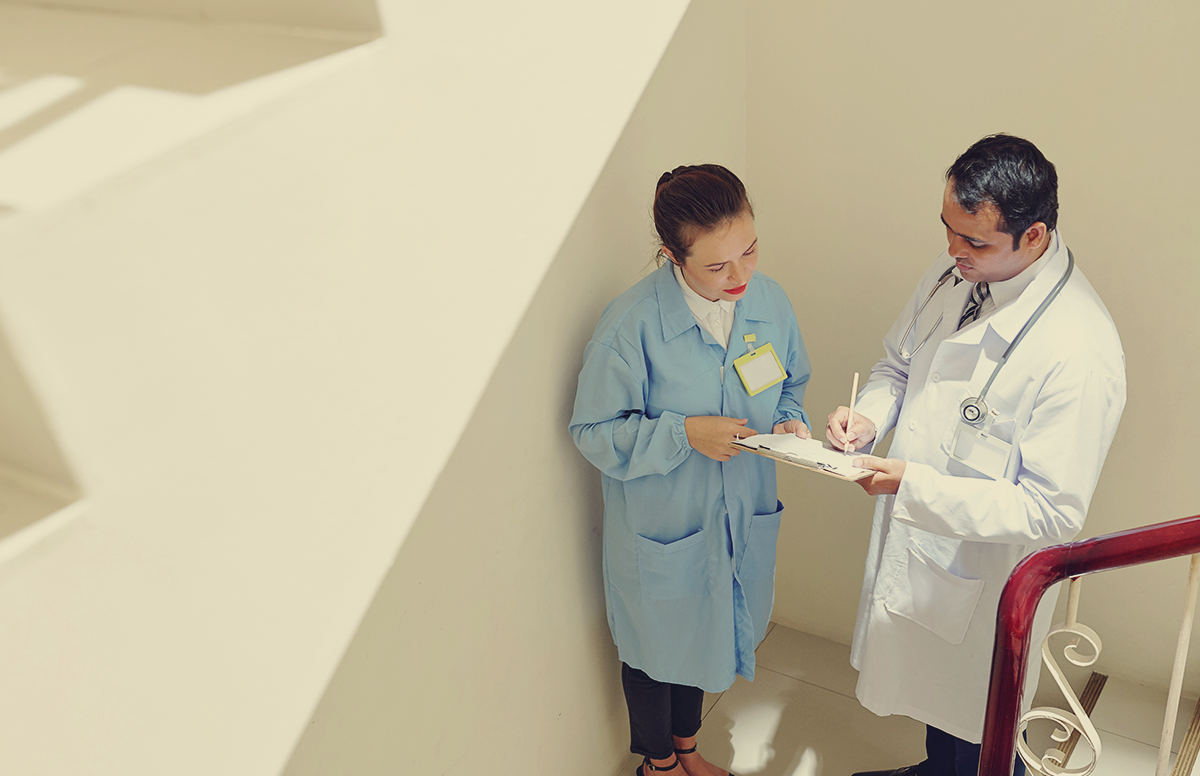HIV/AIDS and Safety During COVID-19
The CDC has advised all people with HIV to take precautions
(Editor's note: This story is part of Still Here, Still Positive: A series on the first generation of Americans aging with HIV/AIDS, with support from The John A. Hartford Foundation.)

As part of our special series "Still Here, Still Positive," we've been covering the realities of people aging with HIV/AIDS. The Centers for Disease Control and Prevention says "the risk of serious illness from COVID-19 for people with HIV is not known," though people with HIV/AIDS may be at increased risk of getting very sick with COVID-19 based on their age and other medical conditions.
During a March 14 White House news conference, coronavirus task force member Dr. Deborah Birx — who's worked extensively on the fight against HIV/AIDS — addressed the pandemic through the HIV/AIDS lens directly:
"Finally, I just wanted to conclude with a group of patients we are all very worried about – these are individuals that we call long-term survivors from HIV. They're here across the country that have survived more than four decades with HIV. Many of them still carry a level of immunocompromised. To all of them out there, please take care of yourself. Please ensure that you're doing everything possible to ensure you don't get exposed."
We want to do our part to keep readers safe by pointing to the current information and resources available related to the coronavirus and living with HIV/AIDS:
From Liz Highleyman for POZ
What People With HIV Need to Know About the New Coronavirus
New research is emerging about how the respiratory virus spreads and how people can protect themselves and others.
"Brooks' recommendations include ensuring at least a 30-day supply of medications, keeping up to date with flu and pneumonia vaccines, and establishing a plan for clinical care if isolated or quarantined. Finally, he advised, 'Maintain a social network, but remotely—social contact helps us stay mentally healthy and fights boredom.'"
From the National LGBT Cancer Network
Why are LGBTQ+ people at particular risk for coronavirus?
"As an LGBTQ+ person, the faster you take steps to reduce your potential transmission of the virus, the more community members (and others) you will help. These steps include: more vigilance about staying away from groups of people, avoiding touching common surfaces, frequent handwashing, avoiding or at least reducing the number of times you touch your face. All smokers should know they can access free cessation services by calling or visiting 1-800-QUIT NOW."
From John-Manuel Andriote for Psychology Today
Lessons for Living Through the COVID-19 Pandemic
HIV-AIDS taught us that silence = death, and information = power.
"Something we learned in the HIV-AIDS pandemic that is highly relevant to the outbreak of the novel coronavirus: Words matter. Facts matter. It matters how we talk about something like a virus, the illness it causes, and those affected by it. We learned that silence (and ignorance) equals death—and information equals power. Armed with fact-based information, we are best prepared to address the challenges that will lie ahead for many of us."
From Amanda Holpuch for The Guardian
She's a legend in the fight against HIV. Now Dr. Deborah Birx is taking on Covid-19
"Having gone head-to-head with global health leaders while overseeing a program responsible for saving millions of lives, Birx has become something of a legend in the global health community."
From Kendall Ciesemier for The New York Times
Afraid of Coronavirus? I Know What That Fear Is Like
I live with chronic illness. Here is my advice for keeping calm in a health crisis
"But years of living with transplant complications, including a compromised immune system, have taught me how to live despite this fear, how to navigate a world rife with potential danger at every turn."
Looking for Support?
State-by-state HIV/AIDS hotlines from the Ryan White HIV/AIDS Program
CDC HIV hotline:
1-800-CDC-INFO (232-4646)
1-888-232-6348 TTY
In English, en Español, 8 a.m. to 8 p.m. E.T., Monday through Friday
AIDSinfo hotline:
1-800-HIV-0440 (448-0440)
1-888-480-3739 TTY
1-301-315-2816 (outside the U.S.)
In English, en Español, 1 p.m. to 4 p.m. E.T., Monday through Friday
SAGE LGBT Elder Hotline:
877-360-LGBT (5428)
24 hours a day, seven days a week, in English en Español with translation in 180 languages
Next Avenue will continue to provide trusted coverage on the coronavirus as it evolves at nextavenue.org/covid-19. We're also fielding reader questions and want to know critical information you're not receiving from other media.
Additionally, our colleagues across public media offer excellent reporting that shares essential information we all need to know, without hyperbole and speculation. If you haven't already, please look to PBS NewsHour, NPR and your local public media outlets to stay current.


